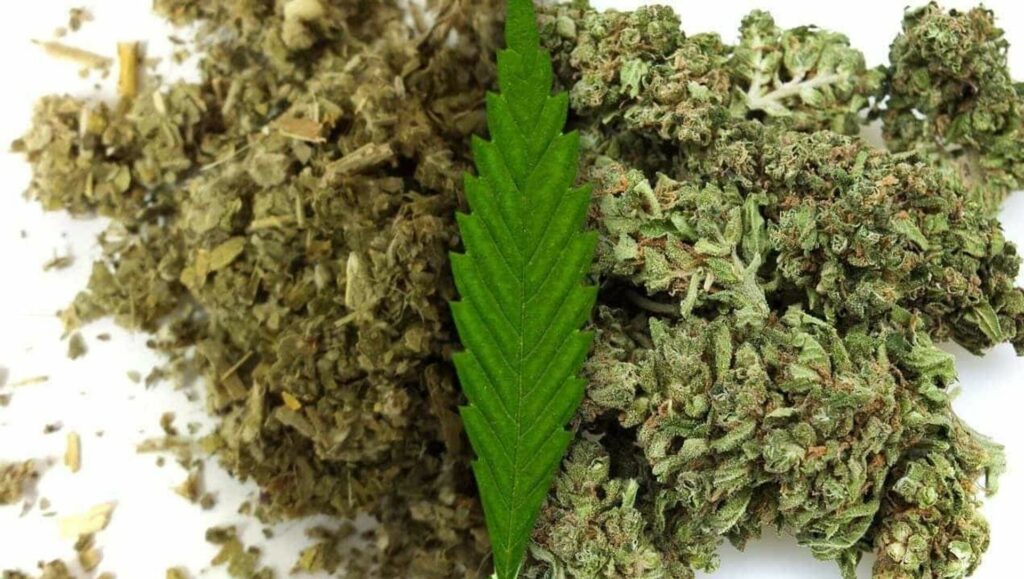Cannabinoids, the chemical compounds found in cannabis plants, have gained significant attention for their potential therapeutic properties. Among the most well-known cannabinoids are CBD (cannabidiol) and THC (tetrahydrocannabinol), each with distinct effects on the body and mind. In this comprehensive guide, we will explore the differences between CBD and THC, their interactions with the endocannabinoid system, potential health benefits, legal status, safety considerations, and the ongoing debate surrounding which cannabinoid is more helpful.
Understanding CBD and THC
CBD (Cannabidiol)
- CBD is a non-psychoactive cannabinoid that does not produce a “high” or altered mental state.
- It interacts with the body’s endocannabinoid system, mainly influencing CB2 receptors located throughout the immune and peripheral systems.
- CBD is commonly derived from hemp plants, which contain less than 0.3% THC on a dry weight basis.
- The compound has gained popularity for its potential therapeutic properties, and it is available in various forms, including oils, tinctures, capsules, edibles, and topicals.
THC (Tetrahydrocannabinol)
- THC is a psychoactive cannabinoid responsible for the intoxicating effects associated with marijuana use.
- It primarily interacts with CB1 receptors in the brain and central nervous system, leading to altered perception, mood changes, and impairment of cognitive functions.
- THC is found in higher concentrations in marijuana plants and is subject to stricter regulations due to its psychoactive nature.
The Battle of Therapeutic Properties
Both CBD and THC have shown promise in addressing various health conditions, but they differ in their potential therapeutic properties. Here’s a closer look at the potential benefits of each cannabinoid:
CBD Potential Therapeutic Properties
Pain Relief: CBD may help manage pain and inflammation, making it potentially beneficial for conditions such as arthritis and chronic pain.
- Anxiety Reduction: CBD has been studied for its anxiolytic properties, and it may reduce stress and anxiety in certain individuals.
- Neuroprotective Effects: CBD’s neuroprotective properties may offer benefits for conditions like epilepsy and neurodegenerative disorders.
- Sleep Improvement: Some users report improved sleep quality and reduced insomnia symptoms with the use of CBD.
- Anti-Inflammatory: CBD has demonstrated anti-inflammatory effects, which may be beneficial for various inflammatory conditions.
THC Potential Therapeutic Properties
- Pain Relief: THC’s interaction with the endocannabinoid system may help manage pain and reduce discomfort associated with various conditions.
- Appetite Stimulation: THC is known to stimulate appetite, making it potentially beneficial for individuals with appetite-related issues.
- Nausea Reduction: THC has been studied for its potential to reduce nausea and vomiting, making it useful for individuals undergoing chemotherapy or dealing with other causes of nausea.
- Muscle Relaxation: THC may have muscle-relaxant properties, offering potential benefits for muscle spasms and tension.
- Neurological Conditions: Some studies suggest that THC may offer benefits for certain neurological conditions, such as multiple sclerosis and Parkinson’s disease.
The Entourage Effect: CBD and THC Working Together
The “entourage effect” refers to the synergistic interaction between various cannabinoids and other compounds found in cannabis. When CBD and THC are consumed together, they may enhance each other’s effects and provide a more comprehensive therapeutic experience.
The entourage effect has led to the development of products that combine CBD and THC in specific ratios to maximize the potential benefits of both cannabinoids.
Legal Status of CBD and THC
The legal status of CBD and THC varies by country and region. In many places, CBD derived from hemp with non-detectable THC levels (0.3% or less) is considered legal for purchase and use. However, THC-containing products, especially those from marijuana plants, are subject to stricter regulations due to their psychoactive nature.
It’s essential to research and be aware of the laws and regulations regarding CBD and THC use in your specific location to ensure compliance with local requirements.
Safety Considerations
Both CBD and THC are generally considered safe for most individuals when used responsibly. However, as with any supplement or wellness product, there are some safety considerations to keep in mind:
- Quality and Purity: Purchase CBD and THC products from reputable sources that provide third-party lab testing for quality and purity. This ensures that you are getting products free from contaminants and unwanted additives.
- Drug Interactions: Both CBD and THC may interact with certain medications, particularly those metabolized by the liver’s cytochrome P450 enzyme system. Consult with a healthcare professional if you are taking prescription medications.
- Individual Sensitivity: Each person’s response to cannabinoids may vary, so it’s essential to start with a low dose and monitor how your body reacts.
- Pregnancy and Breastfeeding: The safety of cannabinoid use during pregnancy and breastfeeding is not well-established. Consult with a healthcare professional before using these products during these periods.
CBD and THC: A Balanced Approach to Wellness
While CBD and THC have unique characteristics and potential benefits, they are not in direct competition with each other. Instead, they can complement one another in a balanced approach to wellness. Some individuals may prefer CBD for its non-psychoactive nature and potential benefits, while others may find THC helpful for specific conditions or symptom management.
The choice between CBD and THC ultimately depends on individual needs, preferences, and goals. Some may prefer CBD for daily use and general well-being, while others may use THC occasionally for targeted relief.
The Ongoing Debate: Which Cannabinoid Is More Helpful?
The debate over which cannabinoid is more helpful, CBD or THC, is an ongoing topic of discussion. However, it’s essential to understand that both compounds offer unique benefits and have their place in supporting overall health and wellness.
CBD’s non-psychoactive nature and broad range of potential therapeutic properties make it an appealing option for many individuals seeking natural remedies. It has gained widespread popularity as a supplement and is increasingly incorporated into various wellness products.
On the other hand, THC’s psychoactive effects may not be suitable for everyone, but some individuals find it helpful for specific conditions or symptoms. In regions where THC is legal, it is commonly used for medical purposes and for recreational enjoyment.
Conclusion
CBD and THC are two of the most well-known cannabinoids found in cannabis plants, and they differ significantly in their effects on the body and mind. While THC is psychoactive and produces the euphoric “high” associated with marijuana use, CBD is non-psychoactive and does not cause any intoxication.
Both cannabinoids have potential therapeutic properties and have shown promise in addressing various health conditions. The choice between CBD and THC ultimately depends on individual needs, preferences, and goals.When considering CBD or THC for personal use, it’s essential to prioritize safety, quality, and informed decision-making. Always consult with a healthcare professional before incorporating cannabinoids into your wellness routine, especially if you have specific health concerns or are taking medications.
By understanding the differences between CBD and THC and their potential benefits, individuals can make informed choices that support their journey toward optimal health and well-being.
Monika Wassermann is a doctor and a freelance writer based in the UK who lives with her cat Buddy. She writes across several verticals, including life, health, sex and love, relationships and fitness. Her three great loves are Victorian novels, Lebanese cuisine, and vintage markets. When she’s not writing, you can find her trying to meditate more, weightlifting, or wandering around in town.
[email protected]
- Sip, Savor, and Sparkle: Exploring the Delights of Melo’s THC Beverages - April 23, 2024
- Exploring Baby Botox with Dr. Laura Geige” - April 2, 2024
- Lip Fillers, Botox, Dermal Fillers, Anti-Wrinkle Injections in Balham SW12 - March 22, 2024











